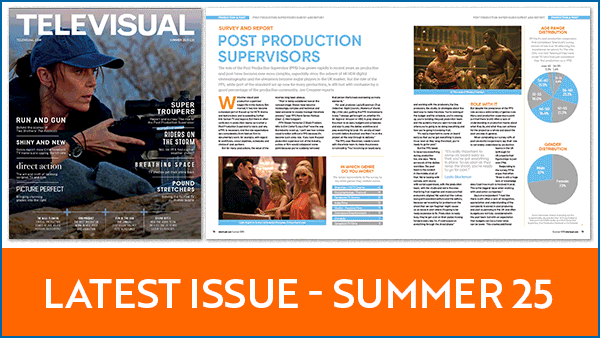Creative UK has published a paper outlining a vision for the newly announced Freelance Champion role in UK Government – starting with a series of formal, structured inquiries into the major systemic barriers freelancers face.
The Freelance Champion role was first announced by the Department for Digital, Culture, Media & Sport (DCMS) as part of the Creative Industries Sector Plan in June 2025. The role is designed to “advocate for the sector’s creative freelancers within government”, with DCMS stating in the plan that terms of reference for the role will be developed alongside industry.
In today’s paper, Delivering for Freelancers, Creative UK has mapped out key proposals for this important function, with a focus on evidence generation, policy leadership and sector engagement.
Central to the proposal is that the Freelance Champion launch formal, structured inquiries into the major systemic barriers freelancers face, comprising closed evidence sessions, commissioned data analysis, and direct engagement with freelancers and creative businesses. It is suggested that the inquiries culminate in a formal report with targeted policy recommendations for the Government to respond to.
Early suggestions of key policy areas for the role to prioritise include:
Working with the Office of National Statistics to modernise SOC and SIC codes and develop new data models to accurately map freelance employment patterns;
Ensuring freelance workers can access skills programmes and continued professional development;
Proposing modifications to financial services regulation, ensuring freelancers are fairly assessed for mortgages, business loans and credit;
Exploring policy incentives for retirement savings amongst freelancers.
Central to all aspects of the role, Creative UK sets out, is internal government advocacy – ensuring that freelancers are central to all policymaking across a range of UK Government departments.
In building out a proposed scope for the role, the paper identifies precedence established by roles such as the Small Business Commissioner (SBC), Scotland’s Veterans Commissioner, and The Older People’s Commissioner for Wales.
Commenting on this paper, Caroline Norbury OBE, Chief Executive of Creative UK, said: “Freelancers are the backbone of the creative industries – comprising up to two thirds of the workforce in some subsectors. The introduction of this much-campaigned for role sends an important message that freelancers are valued – and that their rights are being taken seriously.
“With the responsibilities for the role currently being scoped, this paper proposes an approach rooted in evidence and data. It’s crucial that the Freelance Champion clearly lays out the issues facing freelancers – so that they can effectively work with industry and policymakers to create lasting solutions. Above all, this role is a convener for change: bringing together freelancers, trade associations, unions and major employers to overcome the barriers we know exist.”
Many Creative UK members supported the development of this paper, both through their insights and by reviewing early drafts. In particular, Creative UK would like to thank Bectu, DACS and Directors UK for their expertise and engagement.
Head of Bectu Philippa Childs said: “For too long, freelancers in the UK have got a raw deal. They are critical to the success of our world-class creative industries, yet have borne the brunt of both recent economic shocks and longstanding poor employment practices in the sector.
“Bectu has been fighting hard to secure a better deal for creative freelancers, and we are delighted at the establishment of a freelance champion.
“It’s now time to put the meat on the bone and ensure this role, working with industry, trade unions and freelancer groups, can deliver sustained and meaningful change. We’re thrilled to have contributed to the scope of this critical role, both via this important paper and the DCMS working group, and we’ll continue to ensure Bectu members and other freelancers have a real voice at the heart of government.”
Directors UK CEO, Andy Harrower, said: “Freelancers have been consistently overlooked and underrepresented. They have a precarious existence and are often exposed to risk and poor treatment, despite being the powerhouse behind our £125bn a year creative industries.
“Directors UK contributed to and welcomes the key proposals for the Freelance Champion outlined in Creative UK’s paper. As members of the DCMS working group responsible for shaping the remit of the role, we look forward to driving change towards an improved, sustainable, and inclusive landscape for our members and other creative freelancers.”
Earlier this year, Creative UK published the paper Forging Freelance Futures, having surveyed freelancers on the core issues they are facing. This research found that two thirds of freelancers surveyed had experienced low or unfair pay at some point in their careers. An overwhelming majority of freelancers reported that late payments impacted their ability to meet everyday payments, from rent to bills. And a significant number of freelancers reported facing heightened challenges due to the rise of artificial intelligence (AI) technologies. Crucially, it was also reported that structural inequalities are compounding these challenges.
30% of the creative industries workforce operate on a freelance basis – in some subsectors (such as theatre, film), that rises to 60%.
The Creative Industries Sector Plan was published in June 2025. It came on the back of the UK Government naming the creative industries as one of eight priority growth sectors in its Industrial Strategy (also published in June 2025).
The role of Freelance Champion is new, and is being developed by DCMS.
Creative UK is the national membership body for the Cultural and Creative Industries. It exists to champion creativity in its widest form – representing world-leading organisations from sectors as diverse as advertising, animation, architecture, broadcasting, crafts, design, digital, education, fashion, games, heritage, museums, music, performing arts, photography, publishing, theatre, TV, visual art and more.
It is an independent not-for-profit, which uses the insight and experience of members to help shape relevant government policy and advocate for meaningful change. Change that will benefit UK businesses, citizens and communities.
Its vision is a world where creativity is valued and recognised as the driving force for our future. It has directly invested millions of pounds into creative businesses over the last decade.
The team is based across the UK, and works closely with Local and Combined Authorities to support creative talent, whilst delivering hands-on support – spanning business diagnostics, mentoring and investment readiness.
Its Filming in England service is a dedicated and bespoke production service to feature film and high-end TV productions looking to film in England, outside of London.
Pippa Considine
Share this story

















